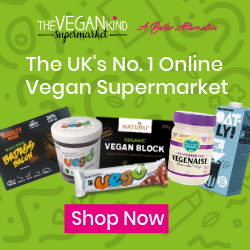H&M, one of the world’s leading fast fashion brands, have introduced a fruity twist to their ninth Conscious Exclusive collection. BLOOM Foam, Piñatex and Orange Fiber are the three vegan fabric companies who are working with H&M to create a line which is said to emphasise the wastefulness of the fashion industry. However, we must question how far H&M and their H&M’s Fruit-Based Collection actually going in promoting a sustainable, ethical, and ultimately vegan way to purchase clothing.

As previously stated, H&M is one of the world’s leading fast fashion brands, renowned for its mistreatment of labourers in the sweatshops used to produce its clothing. The contrast between the reality of fast fashion and H&M’s Conscious collection creates an interesting sustainability paradox. Fast fashion strategy relies upon a garment’s competitive pricing and planned obsolescence (where a product is intentionally produced with a limited useful lifespan e.g. poor quality, will become unfashionable). H&M is able to make products cheap through poor working standards and encourages a relationship with fashion based around quickly fluctuating styles. The mistreatment of human beings within these factories is, inherently, not vegan. Both socially and environmentally, H&M is failing to truly embody a sustainable policy.

Though H&M is making progress in the sense that it is using vegan fabrics to produce its ‘Conscious’ line, this progress is perhaps undermined by the company’s ethical stance as a whole. The introduction of these vegan fabrics, instead of being an actual step in a sustainable direction, may in fact be an attempt at greenwashing (a marketing technique in which corporations falsely claim to be implementing ethical/environmentally friendly practices). This is, perhaps, even worse for promoting sustainable fashion, as it misleads consumers into thinking purchasing clothing at H&M is an ethical choice.
Undeniably, the use of these fabrics is ethically better than H&M using leather in yet another Conscious collection. Yet, environmentally these fabrics are not perfect; though the origins of the materials are compostable or recyclable, the end result is neither due to the usage of chemical treatments, the same as on regular fabrics. However, the fabrics create much less waste than their non-vegan counterparts and are renewable, sustainably sourced and cruelty free. The fabrics themselves are worthy of praise, H&M less so.
Perhaps the popularity and scale of media attention generated by H&M launching this collection will bring a net good to the movement towards ethical fashion, but it is certainly easy to be cynical of H&M’s motivations. The H&M brand is high-profile and with global influence, so bringing awareness, and funding, to these smaller vegan fabric companies is no doubt a positive. Yet, to oversimplify the issue by commending H&M for their vegan fabric choices is to ignore the horrific conditions faced by underpaid, overworked labourers. Yes, H&M choosing to promote these fabrics as viable alternatives is great, but we must hold the company to a higher standard regarding environmental impact and workers’ rights and not remove the complexities tying veganism to sustainability.
If you have enjoyed reading this blog post then don’t forget to check out our other categories such as videos, events, fashion and beauty, activism, travel, interviews and more.







